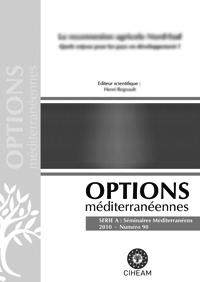| Article précédent | p. 67-71 | Article suivant |
Influence of the degree of dietary fatty acid unsaturation on rumen fermentation parameters
The influence of the degree of dietary fatty acid unsaturation on rumen fermentative activity was tested by comparing two extruded oilseeds (rapeseed or R and linseed or L) incorporated at a level of 8 percent dry matter (DM) in ruminant diets. With the R diet (rich in C18:1), the ruminal pH of fistulated goats was statistically lower and the number of protozoa was higher than with the L diet (rich in C18:3). However, the molar composition of the volatile fatty acid (VFA) did not differ between diets at the different sampling times. The in sacco dry matter degradability of the diets was measured on fistulated cows adapted to the experimental diets. It was higher with the R diet. In conclusion, the increase in the degree of dietary fatty acid unsaturation seems to decrease the ruminal fermentative activity.
- [ Afficher ]
- [ Télécharger ]
- [ Exporter la citation ]
Vous pouvez télécharger la citation au format :
- [ Imprimer ]
-
Mots-clés
ACIDE GRAS INSATURE, GRAINE OLEAGINEUSE, REGIME ALIMENTAIRE, RUMEN, RUMINANTCiter cet article
Giger-Reverdin S., Le Pierres J.L., Duvaux-Ponter C., Morand-Fehr P., Tessier J., Dupas G., Martin O., Rouzeau A., Sauvant D. Influence of the degree of dietary fatty acid unsaturation on rumen fermentation parameters. In : Ben Salem H. (ed.), Nefzaoui A. (ed.), Morand-Fehr P. (ed.). Nutrition and feeding strategies of sheep and goats under harsh climates . Zaragoza : CIHEAM, 2004. p. 67-71. (Options Méditerranéennes : Série A. Séminaires Méditerranéens; n. 59). 9. Seminar of the Sub-Network on Nutrition of the FAO-CIHEAM Inter-Regional Cooperative Research and Development Network on Sheep and Goats, 2001/11/08-10, Hammamet (Tunisia). http://om.ciheam.org/om/pdf/a59/04600009.pdf



